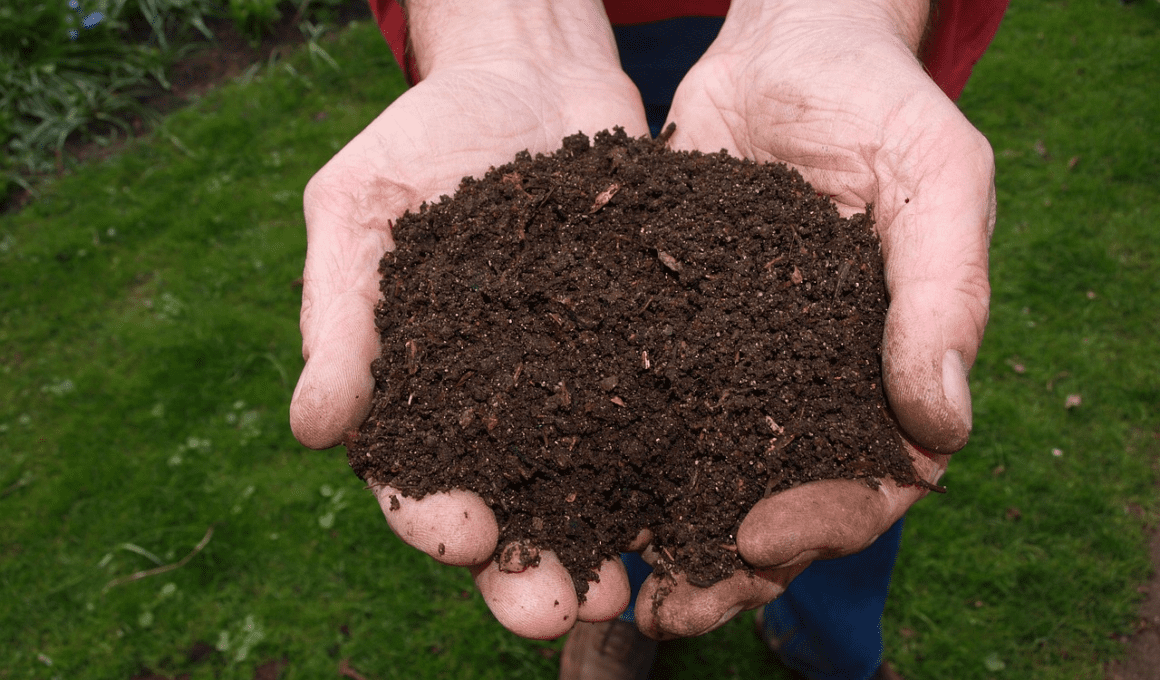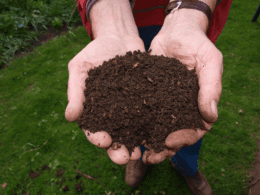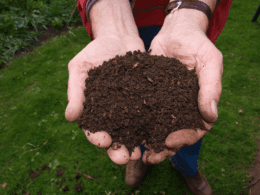Are you looking for a sustainable way to enrich your soil and improve the health of your plants? Composting mushrooms might be the solution you need!
Not only do mushrooms add essential nutrients to your compost pile, but they also speed up the decomposition process. However, it’s important to know how to compost mushrooms safely and effectively to avoid any potential risks.
In this article, we’ll explore the benefits of composting mushrooms and provide you with tips to help you create healthy soil for your plants. We’ll also discuss the factors that affect mushroom growth and how to balance the carbon and nitrogen ingredients to prevent mushroom growth.
Whether you’re a seasoned gardener or a beginner, composting mushrooms can be a great way to create a sustainable garden and promote a healthy environment. So, let’s dive in and discover the tips and benefits of composting mushrooms!
Quick Takeaways
- Mushrooms can be safely composted, but their spores can lead to growth if the carbon and nitrogen balance and moisture levels are not properly maintained.
- Turning compost regularly and keeping heat levels high can deter mushroom growth and speed up the decomposition process.
- Poisonous mushrooms in compost can harm animals or pests that eat them, so it’s important to use a container with lids or barriers to prevent access.
- Using mushrooms in compost enriches it with phosphorus, potassium, and copper, providing benefits to gardens and outdoor spaces of any size.
Can I Compost Mushrooms During Winter?
When it comes to winter composting, mushrooms can still be composted successfully. However, it is important to keep in mind some winter composting tips for success. Mushrooms are a great addition to the compost pile as they are rich in nutrients and can help break down organic matter. So go ahead, include mushrooms in your compost even during the winter months.
Can Mushrooms Be Composted?
You can safely compost mushrooms, but be aware that their spores can lead to growth in the compost and indicate an imbalance of green to brown materials. To avoid mushroom growth, it’s important to balance the carbon and nitrogen ingredients in your compost and reduce moisture levels. Turning your compost regularly can also help break up mycelium threads and prevent excess moisture.
High-heat levels can also deter mushroom growth, so make sure to monitor the temperature of your compost pile. While mushrooms can speed up the decomposition process in your compost, adding too many can lead to risks such as excess moisture and the potential for poisonous varieties to harm animals or pests.
To avoid these risks, it’s best to compost mushrooms in moderation, offset by appropriate amounts of brown materials. Chopping or crumbling mushrooms before adding to your compost can also help them break down quicker. By practicing proper mushroom composting techniques, you can enjoy the benefits of enriched soil without sacrificing safety.
Factors Affecting Mushroom Growth
Reducing moisture levels and maintaining a balanced carbon and nitrogen ratio are key factors in preventing excessive mushroom growth in compost. Mushrooms are indicators of an imbalance in the compost mix, indicating more nitrogen-rich green materials than carbon-rich brown materials. To maintain a healthy compost, it is important to balance the carbon and nitrogen ratio by adding enough brown materials like dry leaves, straw, or wood chips to offset the green materials like food scraps, grass clippings, and coffee grounds.
To help prevent mushroom overgrowth, it is also important to monitor the moisture level of the compost. Too much moisture can create a damp environment that is ideal for mushroom growth. A simple way to reduce moisture levels is to turn the compost pile regularly, which helps to break up mycelium threads and increase airflow. Additionally, covering the compost with a tarp during rainy weather can prevent excess moisture from accumulating. The following table shows some common green and brown compost materials and their carbon to nitrogen ratio, which can help you achieve a balanced compost mix and prevent excessive mushroom growth.
| Compost Material | Carbon to Nitrogen Ratio |
|---|---|
| Grass clippings | 19:1 |
| Coffee grounds | 20:1 |
| Vegetable scraps | 25:1 |
| Leaves | 60:1 |
| Straw | 100:1 |
Benefits of Using Mushrooms in Compost
Adding mushrooms to your compost can provide numerous benefits. They not only speed up the decomposition process of all the ingredients in your compost but also enrich it with essential nutrients like phosphorus, potassium, and copper. These nutrients are vital for soil health and the growth of your plants, making mushrooms an excellent addition to any compost pile.
Mushrooms contain essential microorganisms that help create and maintain heat within your compost, promoting faster decomposition of all the organic matter. Moreover, they can help balance the carbon to nitrogen ratio, which is essential for proper decomposition.
By using mushrooms in your compost, you’re not only reducing waste but also creating healthy soil for your plants to thrive. So, don’t hesitate to add mushrooms to your compost pile and enjoy the many benefits of nutrient enrichment and soil health.
Frequently Asked Questions
Are there any specific types of mushrooms that should not be composted?
When composting mushrooms, it’s important to avoid composting poisonous mushrooms. Mushroom compost restrictions should be followed to prevent harm to animals or pests that may eat them.
Can mushroom compost be used for indoor plants?
Yes, mushroom compost can be used for indoor gardening. It is rich in nutrients like phosphorus, potassium, and copper. Its properties improve soil structure, retain moisture, and reduce disease. Use it in moderation to avoid over-fertilizing.
How long does it take for mushrooms to decompose in compost?
You may wonder how long it takes for mushrooms to decompose in compost. Under optimal conditions, mushrooms can decompose in a week to a year. Turning the compost regularly and balancing carbon and nitrogen ingredients can speed up the process.
Can composting mushrooms attract pests or rodents?
Preventing infestations is possible with proper mushroom composting techniques. Keep the compost pile turned and balanced with brown materials. Use a container with barriers to deter pests from accessing compost with poisonous mushrooms.
Can composting mushrooms affect the pH balance of the soil in my garden?
Composting mushrooms won’t significantly affect pH levels in your garden. However, using mushroom compost can enrich your soil with essential nutrients such as phosphorus, potassium, and copper, promoting healthy plant growth. Follow proper mushroom composting techniques to prevent imbalances and ensure a successful garden.









